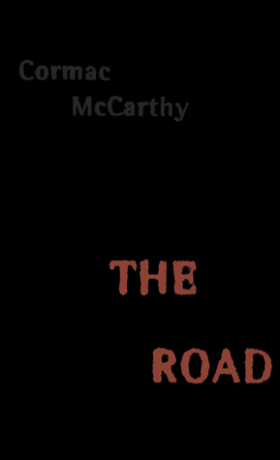The 2006 Pulitzer-prize winning novel “The Road” by Cormac McCarthy is bleak, by any standard of the definition. If you want a glimpse of what the post-apocalypse really looks like, you’ll find it here. The story focuses on one man and his child wandering on a road south to escape the cold in a gray ruined world with a sky that never shows the sun or stops raining ash.
The world that once was will never be again. In the aftermath of the apocalypse there is no wildlife at all, and humanity is slowly nearing extinction as cannibalism becomes the norm. Those few details exist to let you know how hopeless the world is, but the central struggle is a father trying to keep his son alive and to find some meaning beyond the stretch of road he can see in front of him.
I would contend that this is the alpha of post-apocalyptic novels. There’s no respite from the natural elements and human dangers in a world that’s edging to oblivion.
There were few nights lying in the dark that he did not envy the dead.
The story puts the reader right into its world. One example is the bitter relentless cold. I can remember back more than a decade to a nighttime Army exercise in winter with “cold to crack the stones,” to borrow a phrase from McCarthy. I can’t imagine living day-to-day not being able to get warm and being perpetually miserable.
They went on. Treading the dead world under like rats on a wheel. The nights dead still and deader black. So cold.
There’s a moral compass that the father tries to stay true to, and it’s his son that likely keeps him from giving in completely or to his darker nature.
What makes this book rise above others of similar ilk is the relationship and the conversations that the boy and his father have. What they talk about and how sparse their conversations are hit exactly the right tone for this world. There’s not much to talk about and they have very little energy to do it. The story is pure in the sense of a father and boy being able to rely on each other and live only for each other, and that in itself has some haunting beauty, despite the father knowing that they are on borrowed time.
Then there’s the gallows humor:
What’s the bravest thing you ever did?
He spat into the road a bloody phlegm.
Getting up this morning, he said.
Really?
No. Dont listen to me. Come on, let’s go.
Every decision they make means life or death. Living that way for years on end would tear down even the most resilient of people. The father desperately needs to get his son to the coast, someplace warmer, but then what next? That’s a question he himself does not have an answer to. Don’t expect a traditional narrative arc where you’re given the answers at the end. I think the story, at least for me, is part fiction and part study for reflecting on your values.
The frailty of everything revealed at last. Old and troubling issues resolved into nothingness and night.
I learned a lot from “The Road” — examining more closely what I have in life, the resilience of the human spirit, the fragility of the world, putting relationships first, and not giving in to your darker self, to name a few.
The novel is bleak, depressing, and utterly devoid of hope, but that’s what the end of the world really looks like.
5 of 5 stars
-Josh
p.s. I did an analysis of votes by Goodreads’ fans for top dystopian fiction by creating an interactive graphic. Design inspired by “The Road.” Check it out.


